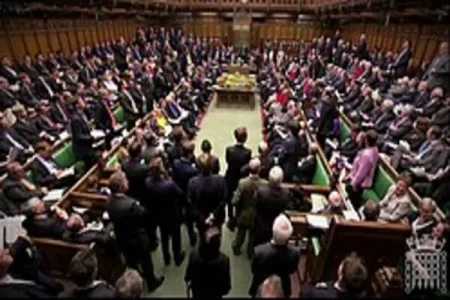
The British government's long-contested proposal to deport asylum seekers to Rwanda has finally gained parliamentary approval, marking a decisive end to months of legislative gridlock.
Under the newly passed law, asylum seekers arriving in the UK through irregular means will be swiftly transferred to Rwanda, with Prime Minister Rishi Sunak signaling the first deportation flights to commence as early as July.
The bill, set to receive royal assent imminently, has stirred significant controversy, with critics condemning it as an inhumane and flawed approach to immigration management. Home Secretary James Cleverly hailed the bill's passage as a pivotal moment in the government's efforts to curb unauthorized Channel crossings, emphasizing its role in safeguarding national sovereignty and upholding immigration control.
However, advocacy groups such as the International Rescue Committee UK have fiercely opposed the move, denouncing it as both ineffective and morally unjustifiable. As the UK braces for the implementation of this contentious policy, questions linger over its ethical implications and the broader ramifications for refugee protection and international obligations.




